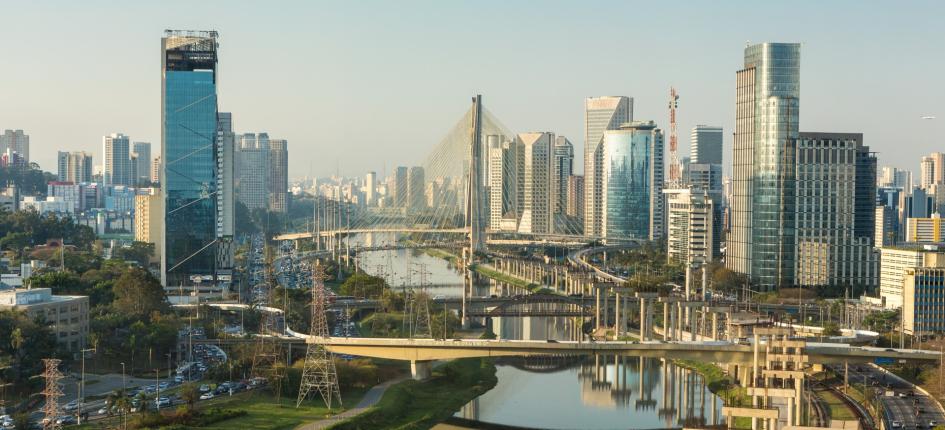Required export documents
1. Commercial invoice
In addition to the usual commercial information, the invoice must contain the following:
- Precise description of the goods incl. trade name and further details for unmistakable identification
- HS code
- Country of origin, country of purchase and country from which the goods are delivered
- Gross and net weight of the goods
- Number and quantity of packages
- Transport costs and other costs incurred in connection with the goods
- Legitimate signature of the exporter
The manufacturer's details are also required for the import customs declaration in Brazil. These can be listed on the invoice, for example.
2. Packing list
The shipment must be accompanied by a packing list containing an overview of the details and contents of the packages, including their dimensions and quantity.
You can also obtain detailed information on the import formalities applicable to your products in Brazil from our customs database, which can be accessed for free.
Customs value
Agreement on the customs value: It is important to remember that taxes are levied on the customs value during import. This may differ from the trade value of the product.
An example:
Company "A" sells product "X" to 5 different countries and applies the value of 100.00 euro to each piece. The company decides to sell the same product at a discount of 30 %, i.e. 70.00 euro per piece to company "B" in Brazil.
In business transactions between companies, the discount can be applied. However, import taxes are levied on the value of the item in the international market or on the value that company "A" uses in the other markets. It is also possible to levy import taxes on the average value.
If exporting company "A" has a business relationship with company "B", it can apply transfer pricing and specify the cost value for import tax. However, specific regulations must be observed in this regard. You can find further information on determining the customs value via this link.
Import license
An import license is required for most products. A distinction is made between the automatic and non-automatic import license. Both licenses are valid for 90 days.
The automatic license is applied for by the importer after shipment to the exporting country, but before arrival in Brazil. With a correct and completely submitted license application, the processing time takes 10 days. The non-automatic license, on the other hand, must be applied for before the goods are shipped. The processing time is 60 days.
Temporary import
As of January 1, 2022, the processing of temporary imports via an ATA Carnet is no longer possible in Brazil.
Anyone wishing to import professional equipment, exhibition goods or samples of goods into Brazil on a temporary basis can use the customs procedure "Temporary Importation" with the deposit of a security.
Registrations
As is common in many other countries, certain products in Brazil (such as medical products, cosmetics, foodstuffs, etc.) are subject to registration with the relevant authorities.
Brands and intellectual property should be correctly registered. For certain products, the regulatory environment requires a review of the requirements for each product to be sold in the country, e.g. foodstuffs, medical devices, pharmaceuticals, telecommunications, etc., which quite often requires adaptation of the label and packaging.
Sanctions / Embargoes / Export controls
At the time of writing this article, no sanctions or embargoes have been imposed on Brazil. However, this can change at any time, which is why we recommend you check whether corresponding measures have been imposed prior to each export. Certain products and product groups, such as dual-use goods, also require an export permit for delivery to non-sanctioned countries.
S-GE tips
Business connections
Brazil's peculiarities in certain sectors can be difficult to handle - from cultural aspects to language barriers. That is why it is important to have someone on site to support them, especially in the first stages of doing business in Brazil. The Swiss Business Hub Brazil can assist you with closing any gaps and will be happy to put you in touch with the right experts if necessary.
Brazilians are optimistic by nature and tend to promise more than they can achieve - and you shouldn't forget that it's a continental country that often cannot be covered by a single distributor. For this reason, exclusivity for the entire area is not recommended. It is important to set clear goals with partners and to review market information occasionally to confirm potential as well as the optimal structure.
Price and payment terms are very important sales factors. Swiss products are generally perceived as being high quality. However, relying on quality as a primary competitive advantage can be risky. Swiss companies should also adapt their products in line with local technical requirements and culture. Putting the emphasis on product quality, after-sales service, financing arrangements and warranty terms are important, as these are key competitive advantages.
Incoterms
Brazilian law prohibits the use of the Incoterms clause DDP as part of the normal customs clearance procedure in Brazil. Customs clearance can only be carried out by Brazilian companies with a local company registration number (CNPJ and Radar). It is therefore impossible for the foreign seller to organize the import from abroad.
An exception is made for courier shipments, which are subject to some restrictions (value of goods + freight + insurance must be below USD 3,000, weight up to 70Kg, maximum 3 repeated products), for which 60% import tax (II) and 18% ICMS are charged automatically. This exception is intended to facilitate private imports. For B2B shipments, however, there is a significant risk that the exception will be classified as non-compliant and converted into a standard import.
Terms of payment
Getting paid can be difficult, frustrating and time-consuming. It is therefore advisable to find a compromise with the Brazilian company beforehand. A letter of credit, for example, is associated with fees, but is nevertheless less expensive than possible court proceedings. For exports of a higher value, infrastructure projects for example, it is highly recommended to apply for support from Swiss Export Risk Insurance (SERV). SERV insures the export business of Swiss companies in all sectors against financial and political risks.
It gives exporters the security that their goods will be paid for. The products of SERV also make it easier for exporters to finance their transactions and preserve their liquidity in the areas of consumer and capital goods exports, exports of services such as construction, maintenance and engineering work, and license and know-how contracts. Further information is available via this link.
All information in this article is provided for guidance only and is neither exhaustive nor legally binding.





